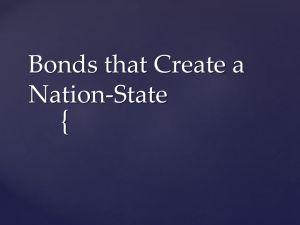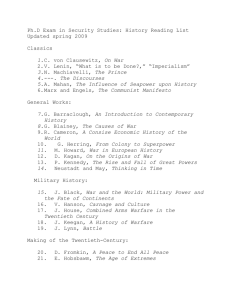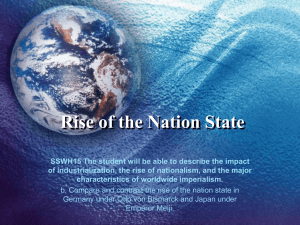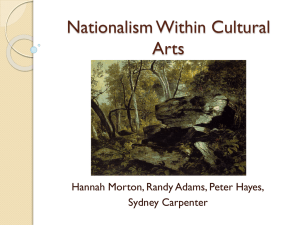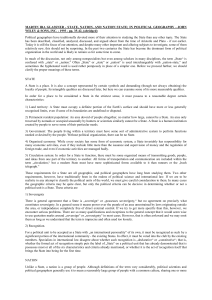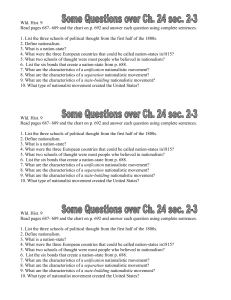Origins of Nationalism Nationalism and the Nation State Nationalism
advertisement
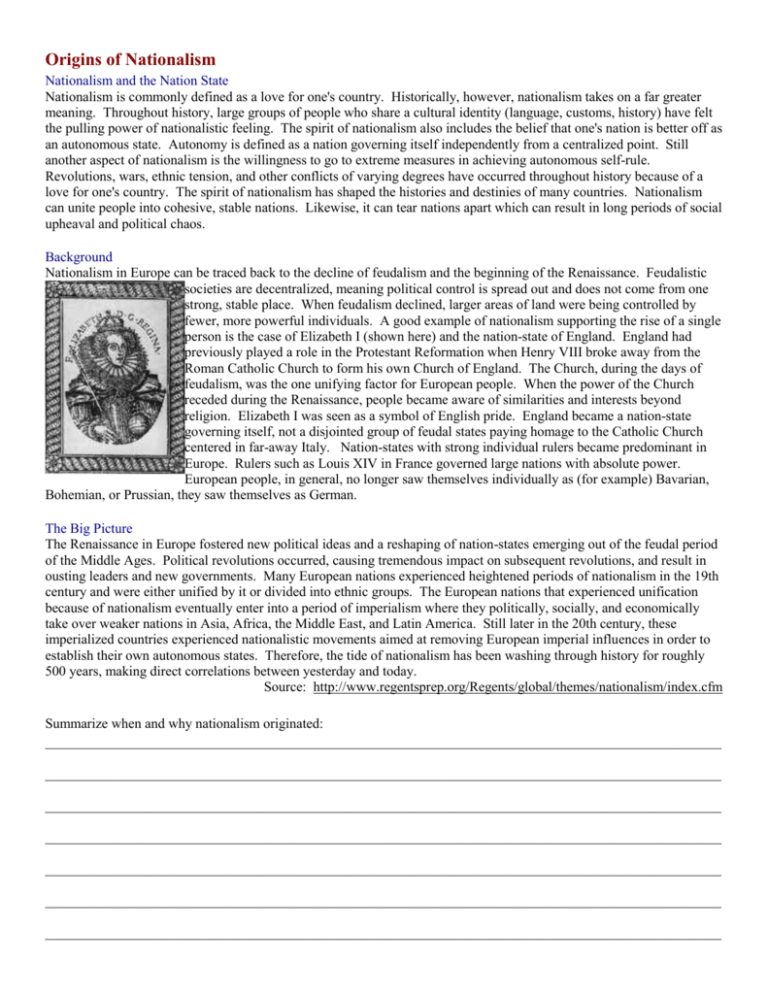
Origins of Nationalism Nationalism and the Nation State Nationalism is commonly defined as a love for one's country. Historically, however, nationalism takes on a far greater meaning. Throughout history, large groups of people who share a cultural identity (language, customs, history) have felt the pulling power of nationalistic feeling. The spirit of nationalism also includes the belief that one's nation is better off as an autonomous state. Autonomy is defined as a nation governing itself independently from a centralized point. Still another aspect of nationalism is the willingness to go to extreme measures in achieving autonomous self-rule. Revolutions, wars, ethnic tension, and other conflicts of varying degrees have occurred throughout history because of a love for one's country. The spirit of nationalism has shaped the histories and destinies of many countries. Nationalism can unite people into cohesive, stable nations. Likewise, it can tear nations apart which can result in long periods of social upheaval and political chaos. Background Nationalism in Europe can be traced back to the decline of feudalism and the beginning of the Renaissance. Feudalistic societies are decentralized, meaning political control is spread out and does not come from one strong, stable place. When feudalism declined, larger areas of land were being controlled by fewer, more powerful individuals. A good example of nationalism supporting the rise of a single person is the case of Elizabeth I (shown here) and the nation-state of England. England had previously played a role in the Protestant Reformation when Henry VIII broke away from the Roman Catholic Church to form his own Church of England. The Church, during the days of feudalism, was the one unifying factor for European people. When the power of the Church receded during the Renaissance, people became aware of similarities and interests beyond religion. Elizabeth I was seen as a symbol of English pride. England became a nation-state governing itself, not a disjointed group of feudal states paying homage to the Catholic Church centered in far-away Italy. Nation-states with strong individual rulers became predominant in Europe. Rulers such as Louis XIV in France governed large nations with absolute power. European people, in general, no longer saw themselves individually as (for example) Bavarian, Bohemian, or Prussian, they saw themselves as German. The Big Picture The Renaissance in Europe fostered new political ideas and a reshaping of nation-states emerging out of the feudal period of the Middle Ages. Political revolutions occurred, causing tremendous impact on subsequent revolutions, and result in ousting leaders and new governments. Many European nations experienced heightened periods of nationalism in the 19th century and were either unified by it or divided into ethnic groups. The European nations that experienced unification because of nationalism eventually enter into a period of imperialism where they politically, socially, and economically take over weaker nations in Asia, Africa, the Middle East, and Latin America. Still later in the 20th century, these imperialized countries experienced nationalistic movements aimed at removing European imperial influences in order to establish their own autonomous states. Therefore, the tide of nationalism has been washing through history for roughly 500 years, making direct correlations between yesterday and today. Source: http://www.regentsprep.org/Regents/global/themes/nationalism/index.cfm Summarize when and why nationalism originated: __________________________________________________________________________________________________ __________________________________________________________________________________________________ __________________________________________________________________________________________________ __________________________________________________________________________________________________ __________________________________________________________________________________________________ __________________________________________________________________________________________________ __________________________________________________________________________________________________
![“The Progress of invention is really a threat [to monarchy]. Whenever](http://s2.studylib.net/store/data/005328855_1-dcf2226918c1b7efad661cb19485529d-300x300.png)



